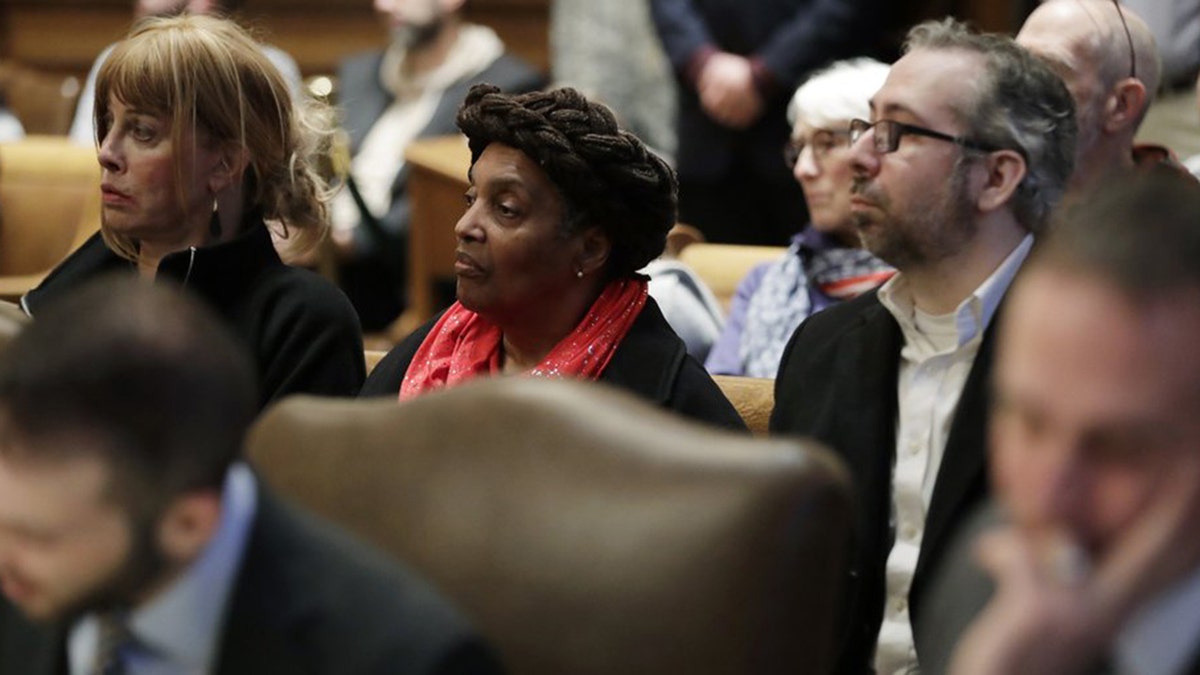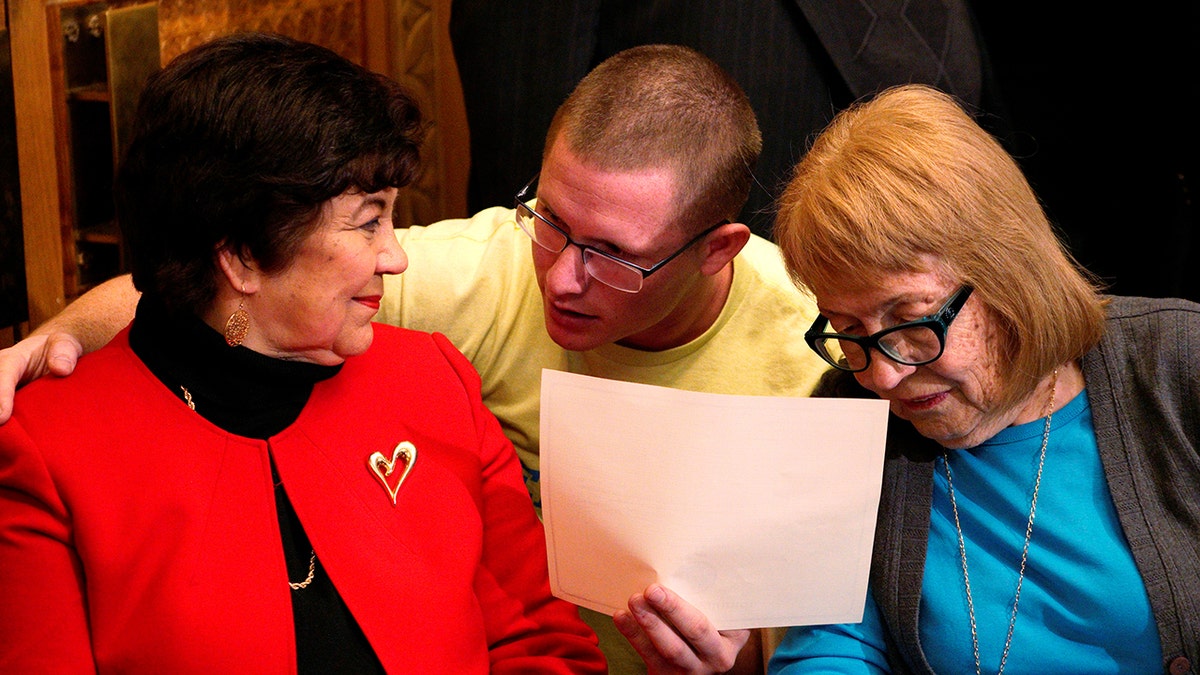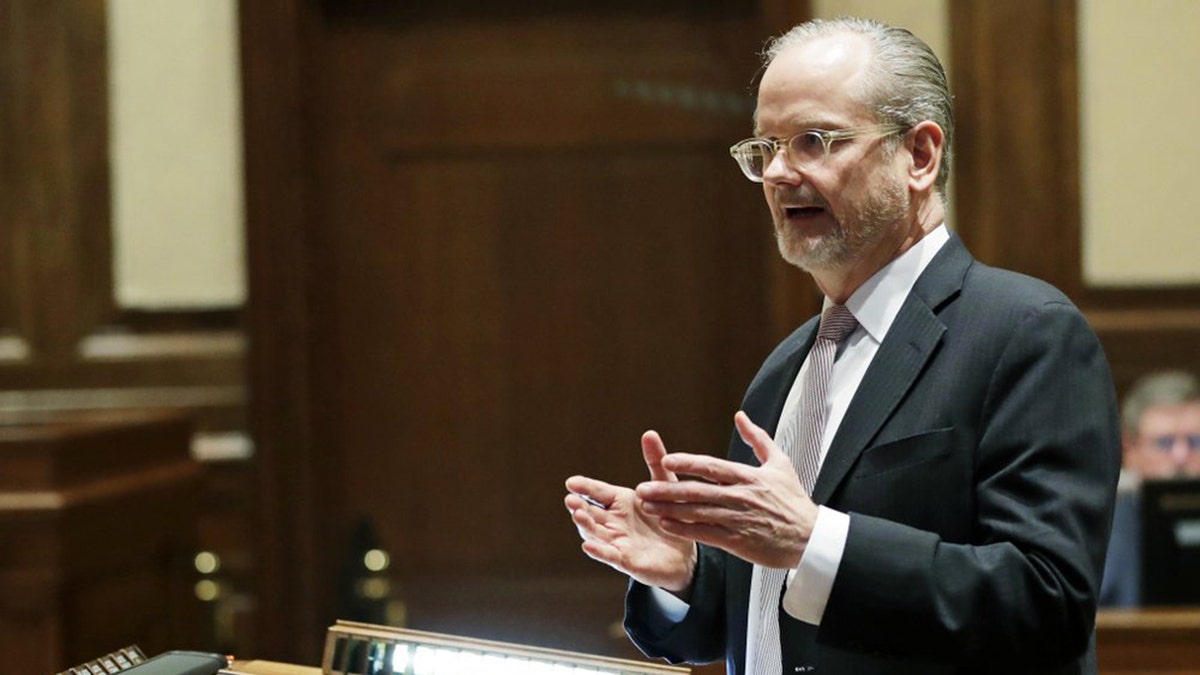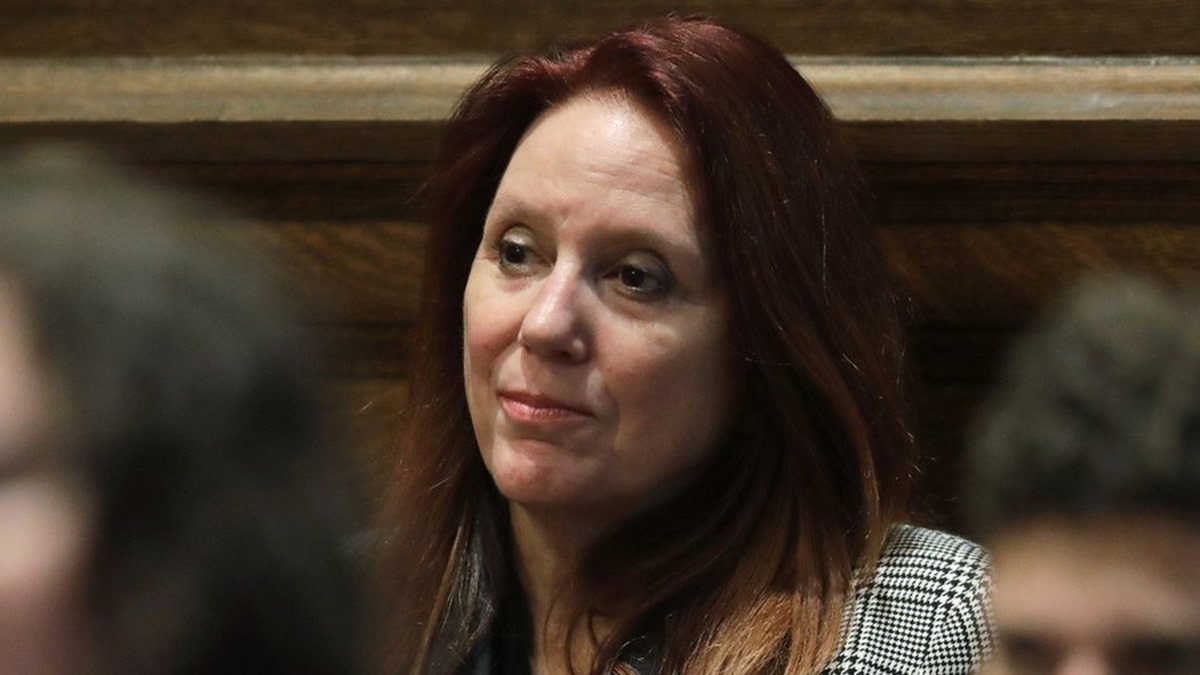Supreme Court to decide if Electoral College voters must vote for winner of state
The Supreme Court plans to hear a case on if presidential electors have to vote in accordance with their state's popular vote in the Electoral College.
How Justice Happens takes a look behind the scenes of Supreme Court litigation at the people involved in the cases, the work that goes into the arguments and the strategy of winning an audience before the highest court in the land.
The 2020 presidential election may be well underway and former Special Counsel Robert Mueller's probe into Russian interference in the 2016 election long over, but the Supreme Court on Wednesday will hear a case that is part of the continuing fallout from that contentious race and has the potential to affect the outcome of future presidential elections.
The cases, centered around "faithless electors," will decide a question that has never before been tested in the Supreme Court: Can states exercise control over members of the Electoral College even after they have been selected and seated? There are many state laws that purport to do just that, but this is the first time any of them have actually been used after electors failed to vote the way they pledged.
Here's how the potential landmark cases made their way to the Supreme Court.

Washington state presidential electors Esther John, center, and Bret Chiafalo, right, sit behind their attorneys Tuesday, Jan. 22, 2019, during a Washington Supreme Court hearing in Olympia, Wash., on a lawsuit addressing the constitutional freedom of electors to vote for any candidate for president, not just the nominee of their party. (AP Photo/Ted S. Warren)
Before the 2016 election
Michael Baca and Bret Chiafalo, two of the highest-profile electors involved in the litigation, were Bernie Sanders supporters in the 2016 Democratic caucuses in Colorado and Washington, respectively. Both were politically active but had other jobs. Baca at the time worked at Jamba Juice and is now a teacher, while Chiafalo is a tech worker.
Baca and Chiafalo, despite their support for Sanders, were willing to vote for Clinton if she became the party's presidential nominee, which is part of the reason each became Democratic Party electors.
"I remember filling all the information out not because I was campaigning to be an elector or trying to be an elector. I filled it out in case I was the only one willing to do it," Baca said of how he first became involved with the 2016 Electoral College.

Electoral College electors (L-R) Sen. Polly Baca, Michael Baca and Ann Knollman talk before taking the oath of office in the Governor's office at the State Capitol in Denver, U.S. December 19, 2016. REUTERS/Rick Wilking
TRUMP CALLS FLYNN 'INNOCENT MAN' AFTER DOJ DRIPS CASE AGAINST FORMER NATIONAL SECURITY ADVISER
Chiafalo, for his part, had been a regular caucus-goer in Washington and, to better inform his personal opposition to the Electoral College, decided in 2016 that he would run to be a Democratic elector.
Hamilton Electors
Then, contrary to polls and expectations, Trump won the November election. That result was unacceptable to Baca and Chiafalo.
"The fact that Donald Trump is a climate denialist I thought that is a very big danger, along with a number of other issues," Baca said.
According to Chiafalo, he and Baca spoke on the phone on election night about ways they could potentially get Hillary Clinton elected.
"But we couldn't figure out a way to get 37 Republicans to write down Hillary Clinton," Chiafalo said, referencing the number of GOP electors that would need to defect from Trump in order to deprive him of the presidency and send the election to be decided by the House of Representatives.
"So what we decided to do at that point was to put together a group to try to get Republican electors to vote for a different Republican to keep Trump under 270," Chiafalo said. The Hamilton Electors, as they called themselves, would vote for GOP candidates as a way to show their commitment to the Republican electors they were asking to abandon Trump.
"We had no idea what we were doing," Chiafalo said of the process of placing calls to GOP electors around the country asking them to jump ship on Trump. "We had other careers."
But the movement grew, with people from across the political spectrum joining the cause. Chiafalo claims that between 30 and 50 total electors were seriously considering their pleas -- though in the end, just seven ended up successfully defecting.
Meanwhile, Washington Secretary of State Kim Wyman's office was getting involved as electors began asking what they "could and couldn't do."
Her office decided that it would levy the $1,000 fine on electors who did not vote for Clinton, consistent with state law.
WHO ARE THE 9 JUSTICES OF THE SUPREME COURT?
"Ultimately it is really about reflecting the will of the voters who participated in the election," she said. "And it is the state's determination of ensuring that those voters are represented in the Electoral College, and it is a state's right and it's a state's function."
The Washington electors sought an injunction against the Washington law before the electors met to cast their ballots. Baca did not join any pre-enforcement litigation, but other Colorado electors went to federal district court to prevent Colorado from enforcing its penalty – removing and replacing electors – for attempted faithless votes.
The electors lost in both cases, and as Dec. 14, the day electors meet to cast their ballots, drew closer, it became clear that not enough Republican electors would jilt Trump to keep him from being elected.
"I still needed to go and stand up behind what I had told all those Republican electors on the phone," Chiafalo said, of his eventual vote for Colin Powell in an opulent ceremony in the Washington Capitol. The vote was counted and he was later fined.
The choice was harder for Baca, who faced removal from his position as an elector in Colorado rather than just a fine as in Washington.
"I really didn't make my decision until I got to the governor's office... And this oath is not the oath that the court had told the state to use," Baca said, saying that the state instead used "a super-specific oath to kind of pigeonhole the electors."
The unexpected change led to an emergency proceeding in the governor's office that ended with the new oath being upheld. Baca signed the oath on the ground to protest the change, but didn't believe the state would be able to remove him for violating it.
He decided to follow through on the plan to vote for a moderate Republican. He crossed out Hillary Clinton's name and wrote in John Kasich.
"The state intervened and removed me as an elector," Baca said. "When they removed me that's when the capitol exploded. There were chants and cheers... I knew I had to stick to my conscience."
Road to SCOTUS
Soon after the Electoral College cast its ballots, Harvard Law Professor Lawrence Lessig and his group Equal Citizens were representing the electors as their cases inched closer to the Supreme Court. Lessig said the top reason he got involved in the case was to get clarity on what exactly the law is: Can states curb the discretion of electors after they are seated or not?
"Regardless of which side of this issue you're on ... we need to resolve this question whether they do outside of a presidential election," Lessig said. "To imagine the issue being teed up in the middle of an actual election, and forcing the Supreme Court to decide the issue where its decision would be picking a president, it would be Bush v. Gore on steroids."
Equal Citizens is one of many nonprofits that take up cases brought by people in federal or state court and work to get a ruling on the issue in the Supreme Court. Lessig's Equal Citizens is largely nonpolitical, but there are other such groups on the left and right that generally don't charge legal fees.

Lawrence Lessig, an attorney representing three Washington state presidential electors, speaks Tuesday, Jan. 22, 2019, during a Washington Supreme Court hearing in Olympia, Wash., on a lawsuit addressing the constitutional freedom of electors to vote for any candidate for president, not just the nominee of their party. (AP Photo/Ted S. Warren)
"I'm willing to work 100 times more, for free, to resolve this question because I think it's important to the Constitution and the republic," Lessig said of the benefit of such groups.
Lessig described the rapid-fire whirlwind of legal proceedings he was responsible for once he joined the case, writing briefs and preparing for arguments in multiple courts.
"There's a lot of work to even just develop those briefs because we have one brief and then the other side responds and then we have a [second] brief," he said, referring to the Washington case. "And then we have to do a whole series of briefs to get the Washington Supreme Court to take the emergency appeal."
That process is stressful, Lessig said, because it essentially involves writing two separate briefs at the same time -- one to convince the Washington Supreme Court to take the emergency appeal and a separate brief for the actual legal argument assuming the emergency appeal is accepted.
That appeal was accepted and oral arguments in the Washington Supreme Court were held in January 2019.
Meanwhile, a similar process was ongoing in the Colorado case, except in a federal district court then in the 10th Circuit.
The 10th Circuit ruled for Baca and the Washington Supreme Court ruled against Chiafalo and his fellow Washington electors -- a disagreement that likely helped the electors in getting their cases to the U.S. Supreme Court. The Supreme Court must prioritize urgent legal issues, and divergent rulings from two high-level appeals courts are among the things it looks for when deciding to hear a case.
The Supreme Court accepted petitions to hear the cases from Colorado and the Washington electors, and the issue was officially on the high court's docket.
Supreme Court litigation
With Supreme Court litigation comes heavy workloads for the lawyers preparing the cases. Lessig said that though he doesn't count the hours he puts into writing briefs and preparing for oral arguments, the work amounts to "endless time."
GORSUCH'S PIVOTAL VOTE COULD FAVOR OKLAHOMA TRIBE IN CONTROVERSIAL NATIVE AMERICAN RAPE CASE
Lessig described a constant "back-and-forth" of editing drafts of briefs with his co-counsel, "tinkering" with the specific language, and then eventually sharing the drafts with other lawyers who reply with notes. Not part of a state attorney general's office or a high-powered law firm, Lessig enlists the law students he teaches to assist with research projects on specific issues.
"We have a Google spreadsheet that sort of raises questions, and then they write memos answering those questions... it's an enormous amount of work to then produce a brief" Lessig said.
One idiosyncrasy with the faithless electors cases is that they were combined, or "consolidated," to be argued and decided together before they were unconsolidated due to a conflict of interest. Justice Sonia Sotomayor is friends with one of the 2016 Colorado electors, Polly Baca, who is not related to Michael, and she recused herself from the Colorado case. To allow Sotomayor to participate in the Washington case, the two were separated after the electors submitted their initial merits brief.
Meanwhile, Baca and Chiafalo have been soaking in the history that they are now a part of, no matter what the ruling in the case.
"This is a big moment," Baca said. "Sometimes it hits me like 'oh man, the Supreme Court is going to hear this. For better or worse my name is going to be attached to this.'"
Chiafalo said that even if his name is forgotten, he feels "fulfilled" that he did his part to help clear up an important constitutional question.
The case is even a big moment for Wyman, who says this is the first Supreme Court case she's been directly involved in.
"It's kind of exciting," she said.

Washington Secretary of State Kim Wyman listens to testimony Tuesday, Jan. 22, 2019, as she attends a Washington Supreme Court hearing in Olympia, Wash., on a lawsuit addressing the constitutional freedom of electors to vote for any candidate for president, not just the nominee of their party. (AP Photo/Ted S. Warren)
DOJ ASKS SUPREME COURT TO TEMPORARILY BLOCK RELEASE OF MUELLER GRAND JURY MATERIAL
Oral arguments
Preparing for oral arguments is also a difficult task, Lessig said, because lawyers making the arguments have to "compensate" for the fact they know the case better than anyone else. While the Supreme Court justices don't exactly need things dumbed down for them, Lessig said it's important for counsel to "make it understandable... to people who've not spent the last four years of their life deep in the bowels of the history of the 12th Amendment."
To do that, lawyers prepare with what are called moot courts.
"Because we know the argument is going to be just audio, you know, we could get together probably six or eight judges and then turn the cameras off, and then jump in and, and so far ... we've been running them the way the traditional arguments have gone where people have been jumping in to ask questions," Lessig said of his Zoom meeting moot courts with colleagues and friends playing judges.
But a late, coronavirus-related change in how the arguments would be formatted threw that preparation for a loop. Traditionally, the justices have allowed lawyers arguing before the court to briefly open their case before the justices, in a rapid-fire manner, jump in with questions. That arrangement was made untenable by the fact the court is running its arguments during the coronavirus crisis via teleconference, removing the visual cues that would allow lawyers to know which justice to address.
Instead, the justices are given the chance to ask their questions in descending order of seniority, an argument format which Lessig just a couple of weeks ahead of the arguments said he had not yet had the chance to practice.
Waiting game
After the arguments Wednesday, nobody besides the nine Supreme Court justices will have the ability to affect the outcome of the cases until the court issues its ruling, which is likely to come in June or July.
CLICK HERE FOR THE FOX NEWS APP
"Sometimes it can be hell," Lessig said of the wait. The high court can take upwards of six months after oral arguments to issue a decision on some cases after they are argued.
Baca said that although he would be on "pins and needles," he will try to use some advice from his mother to cope with the wait.
"If it's not in your control and you can't do anything about it, why stress about it?" he said.
Chiafalo said the wait would be par for the course in his experience with Supreme Court litigation.
"There's been a lot of waiting during this case," he said. "I'm kind of used to it."















































